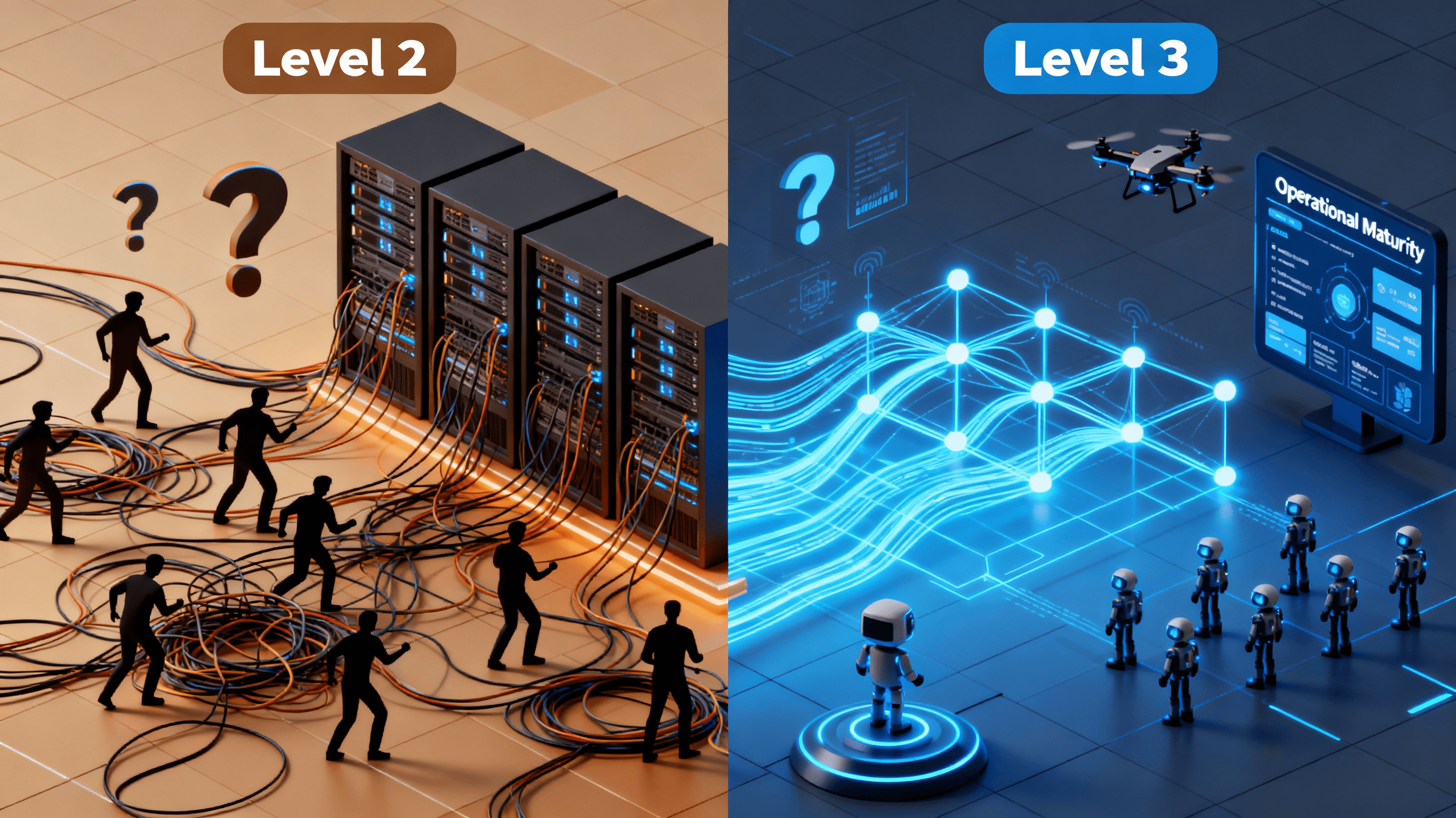The Future of AI in Logistics: What Will the Next Decade Look Like?
Wednesday, 8 Oct 2025
|
How Will AI’s Role in Logistics Evolve Over the Next Decade?
The logistics industry is no stranger to technological advancements, but Artificial Intelligence (AI) is arguably the most transformative of them all. AI has already begun reshaping the logistics landscape, from route optimization to inventory management, predictive analytics, and customer service automation. However, the next decade promises even more significant changes as AI continues to evolve and integrate deeper into logistics operations.
For logistics executives—CEOs, CXOs, and COOs—understanding how AI will evolve is crucial for staying competitive in an increasingly data-driven and technology-dependent market. In this article, we’ll explore the evolving role of AI in logistics, what the next ten years might hold, and how executives can harness these advancements for future success.
The Current State of AI in Logistics: A Brief Overview
Before diving into the future, it’s essential to understand where AI stands today in the logistics industry. Currently, AI is primarily used for:
- Route Optimization: AI algorithms analyze real-time data to determine the most efficient delivery routes, reducing fuel costs and delivery times.
- Predictive Analytics: AI systems forecast demand and predict potential disruptions, allowing logistics companies to proactively manage inventory and scheduling.
- Automation in Warehouses: AI-driven robots and drones are already performing tasks like sorting, packing, and delivery within warehouses, reducing human labor and increasing speed.
- Customer Service Automation: AI-powered chatbots and virtual assistants handle customer inquiries and provide real-time tracking, improving customer satisfaction.
While these applications are already transforming logistics, the next decade will bring even more sophisticated AI-driven innovations.
How AI Will Evolve Over the Next Decade in Logistics
Over the next ten years, AI in logistics will evolve in ways that are set to revolutionize the entire supply chain. Here are the key areas where AI’s role will expand:
1. Fully Autonomous Fleets: The Future of Transportation
AI-powered autonomous trucks and drones are already being tested, but within the next decade, we can expect these vehicles to become mainstream in logistics. By the 2030s, AI-driven autonomous fleets will be a common sight on highways and city streets, with trucks hauling goods and drones making deliveries without human intervention.
Impact on Logistics:
- Cost Reduction: Autonomous vehicles will reduce the need for human drivers, cutting labor costs and minimizing human error.
- 24/7 Operations: Autonomous vehicles can operate continuously, driving round-the-clock deliveries, thus accelerating shipping times.
- Improved Safety: AI can potentially reduce accidents caused by human error, leading to safer roads and a more reliable transportation system.
Real-World Example:
Waymo, the self-driving arm of Google’s parent company Alphabet, has already been testing autonomous trucks in select regions. As the technology matures, the logistics industry will see an increasing shift towards fully autonomous fleets, especially for long-haul freight.
2. AI-Driven Hyper-Personalization in Customer Experience
As customer expectations continue to evolve, logistics companies will increasingly rely on AI to deliver hyper-personalized services. AI will not only optimize delivery routes but will also provide tailored delivery options based on individual customer preferences.
Impact on Logistics:
- Customer-Centric Services: AI will track customer preferences and predict the best delivery windows, locations, and times, leading to a better overall customer experience.
- Dynamic Pricing: AI algorithms will assess demand fluctuations in real-time, offering personalized pricing options to customers based on various factors, such as urgency, delivery window, and destination.
- Enhanced Customer Communication: AI will power real-time communication, ensuring customers are kept informed throughout the delivery process via predictive alerts and personalized notifications.
Real-World Example:
Amazon has already implemented a degree of personalization in its logistics system, using AI to predict customer behavior, optimize delivery windows, and even adjust delivery locations. In the future, logistics companies will take this personalization to the next level, tailoring each delivery experience to the individual.
3. Predictive Logistics and Proactive Supply Chain Management
AI’s predictive capabilities will evolve over the next decade, allowing logistics companies to manage their supply chains more proactively. Instead of reacting to disruptions or demand spikes, AI systems will foresee potential issues and provide solutions before they occur.
Impact on Logistics:
- Proactive Issue Resolution: AI will be able to predict delays due to factors like weather, traffic, or supplier disruptions and offer alternative solutions.
- Optimized Inventory: AI will help companies maintain the perfect inventory levels by predicting demand shifts in real-time, preventing both stockouts and overstocking.
- Efficient Resource Allocation: By predicting future requirements, AI will allow companies to allocate resources more efficiently, ensuring that goods are delivered when and where they are needed most.
Real-World Example:
Maersk, the global shipping giant, is already leveraging AI for predictive maintenance and route optimization. In the future, their AI models will be able to predict supply chain disruptions, allowing them to take proactive measures to mitigate potential issues.
4. Advanced AI-Powered Robotics and Automation
Robotic automation will continue to evolve in warehouses, with AI-driven robots becoming more autonomous, intelligent, and capable of performing more complex tasks. These robots will not only assist with order picking and packing but will also handle tasks such as quality control, inventory audits, and sorting with minimal human oversight.
Impact on Logistics:
- Increased Speed and Accuracy: AI-powered robots will drastically reduce the time it takes to fulfill orders, while also improving accuracy and reducing human error.
- Labor Efficiency: With the integration of advanced robotics, logistics companies will be able to reduce reliance on human labor for routine tasks, freeing up employees to focus on higher-value work.
- Scalability: AI-driven automation can easily scale to meet increased demand, especially during peak seasons like holidays.
Real-World Example:
DHL has already deployed robots in its warehouses to assist with sorting and packaging. As AI advances, these robots will be able to handle more complex tasks and work autonomously alongside human employees, creating more efficient and scalable operations.
5. AI for Sustainability in Logistics
Sustainability will become an even more significant concern over the next decade, and AI will play a crucial role in helping logistics companies reduce their carbon footprint. From optimizing routes to improving packaging and reducing waste, AI can help logistics operations become more environmentally friendly.
Impact on Logistics:
- Reduced Carbon Emissions: AI can optimize routes to minimize fuel consumption and carbon emissions, helping logistics companies meet sustainability goals.
- Eco-Friendly Packaging: AI can analyze packaging patterns and suggest environmentally friendly alternatives that reduce waste while maintaining efficiency.
- Energy-Efficient Operations: AI will help logistics companies reduce energy consumption in warehouses, transportation, and overall supply chain management.
Real-World Example:
DHL has set a goal to achieve zero-emissions logistics by 2050, and AI is central to this strategy. By leveraging AI to optimize routes, reduce fuel consumption, and improve warehouse energy use, DHL is taking significant steps toward a more sustainable future.
6. Enhanced Collaboration with AI Across the Supply Chain
As AI capabilities grow, logistics companies will work more closely with their partners, using AI-driven platforms to share data, optimize workflows, and solve supply chain challenges in real-time. The future of logistics will be increasingly collaborative, with AI acting as the glue that binds different partners in a seamless, efficient network.
Impact on Logistics:
- Streamlined Communication: AI-powered platforms will enable real-time data sharing, helping companies make faster, more informed decisions.
- Collaborative Problem Solving: When issues arise—whether it’s a delay, supply chain disruption, or demand surge—AI will allow companies to collaborate and address the issue quickly.
- Integrated Supply Chains: AI will allow suppliers, distributors, and logistics providers to work more cohesively, reducing silos and increasing overall efficiency.
Real-World Example:
IBM’s Watson AI has been integrated into logistics platforms to enable real-time decision-making and enhance collaboration among supply chain partners. In the future, such platforms will become more advanced, allowing logistics companies to synchronize operations on a global scale.
Conclusion: Preparing for the AI-Driven Future of Logistics
The next decade will be transformative for AI in logistics. From fully autonomous fleets and predictive analytics to robotics, sustainability, and smarter supply chains, the role of AI will expand and evolve in ways that will reshape the entire logistics ecosystem. As executives, the key to staying ahead of this evolution is not only investing in AI technology but also ensuring that your company adapts to the changing landscape through innovation, collaboration, and ethical responsibility.
Next Steps: Book a Demo with Debales AI!
Curious about how AI can revolutionize your logistics operations today and in the future? Book a demo with Debales AI and discover how our AI-driven solutions can help you stay ahead of the curve.
Suggested Posts:
For further reading on AI and logistics, check out these insightful articles:
All blog posts
View All →
Friday, 28 Nov 2025
The 90-Day Roadmap: Moving from Ad-Hoc AI to Operational Excellence
Stuck in AI experimentation? Learn how to escape Level 2 maturity using the Mess-O-Meter to diagnose chaos, prioritize with triangulation, and scale in 90 days.

Thursday, 27 Nov 2025
Mess-O-Meter Deep Dive: Real Logistics Examples for Digital Maturity
Discover Mess-O-Meter examples diagnosing digital chaos in logistics—baseline workflows, benchmark maturity, create AI roadmaps with real steps for transformation success.

Wednesday, 26 Nov 2025
Multi-Agent AI via Email: End-to-End Automation for Logistics Complexity
Explore agentic orchestration where autonomous email AI agents coordinate freight, customs, insurance, and carriers—automating multi-party processes for resilient supply chains.